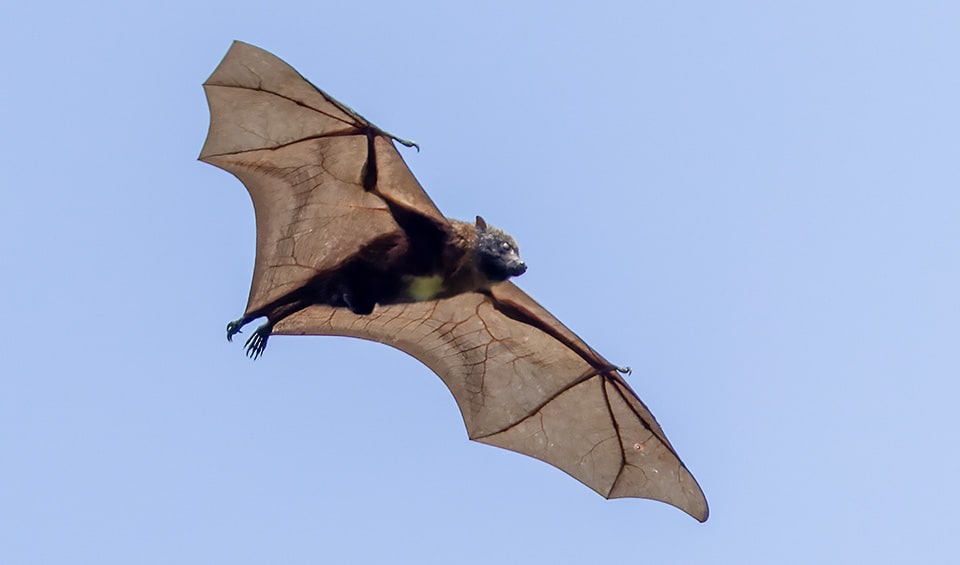This isn’t your average bat; this is the Chuuk flying fox, a majestic giant with wings that can stretch out as wide as a person with outstretched arms. Unlike the tiny bats that flit around erratically, the Chuuk flying fox boasts a thick coat of fur, long and soft, and its ears are small and rounded, almost hidden by its fur. Don’t let its fluffy appearance fool you, though; those big, black eyes hold a keen gaze, perfect for navigating the nighttime forest. Its nose, unlike most bats, isn’t flat but long and pointed, a telltale sign of its fruit-loving ways.
This impressive creature calls Micronesia, a group of islands scattered like stepping stones across the vast Pacific Ocean, its home. The lush green embrace of the rainforest is its playground, with towering trees reaching for the sky and sunlight dappling the forest floor. Here, the Chuuk flying fox spends its days hidden away, hanging upside down from sturdy branches with its sharp claws gripping tight.
As darkness descends, the Chuuk flying fox takes flight. Its wings, massive as they are, are surprisingly light, allowing it to weave gracefully through the dense trees. Unlike most bats that use echolocation, a kind of batty sonar, to find their way around, the Chuuk flying fox relies on its powerful sense of smell and sharp eyesight. This keenness is essential for its nightly mission – finding the juiciest, most delicious fruits the rainforest has to offer.
Distribution
 Micronesia
Micronesia Official estimate
Official estimate
Anything we've missed?
Help us improve this page by suggesting edits. Glory never dies!
Suggest an editGet to know me
Terrestrial / Aquatic
Altricial / Precocial
Polygamous / Monogamous
Dimorphic (size) / Monomorphic
Active: Diurnal / Nocturnal
Social behavior: Solitary / Pack / Herd / Colony
Diet: Carnivore / Frugivore / Omnivore / Piscivorous / Insectivore
Migratory: Yes / No
Domesticated: Yes / No
Dangerous: Yes / No




